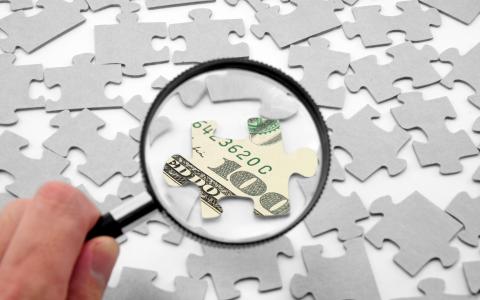
It's good to live life with no regrets.
When it comes to financial regrets, however, it's important what you do next.
Here are 5 financial regrets - and what you can do to turn it all around:
1. Not starting an emergency fund
Too many think disaster will never strike, or it only happens to certain people.
Guess again.
It will happen before you realize it happens. Things will go wrong. Disaster can strike without warning. An emergency fund is the safety net that you need in place before disaster strikes. Consider it a financial first aid kit.
What To Do Instead: At a minimum, you should save 6-9 months (preferably longer) of cash in a separate bank account to cover necessary expenses in case you unexpectedly lose your job, get sick or have another unforeseen expense.
2. Borrowing a bigger mortgage than you can afford
Buying a house can be a smart move for you and your family. It can help build a foundation and bring stability to your life.
However, it can be easy to shop for more home than you need or can afford. That issue can become bigger when you borrow a mortgage.
The way your home looks and how much it costs are two distinct things. Make sure you separate the two - or it will cost you in mortgage payments.
What To Do Instead: Use a mortgage calculator so that you understand the true cost of your mortgage.
3. Borrowing against your IRA
Plain and simple, don't borrow against your retirement account.
As its name suggests, your retirement account is for your retirement.
There’s always a chance you can’t pay back the loan, and then you're in bigger financial trouble. Likewise, if you make an early withdrawal from your IRA, you could face a penalty as well as income taxes.
What To Do Instead: If you need money now, borrow a personal loan instead.
4. Not consolidating credit card debt with a personal loan
Credit card debt in the U.S. is now over $1 trillion - so if you have credit card debt, you're not alone.
Credit cards can be great financial tools, but they can be expensive if you don't repay your balance each month. It's no fun to watch your credit balance grow by a 10-20% APR.
What To Do Instead: Consolidate your credit card debt with a personal loan, which is also known as a credit card consolidation loan. A personal loan is unsecured credit that is typically repaid within 3-7 years. If you can obtain a lower interest rate with a personal loan compared to your credit card interest rate, you could save interest costs.
5. Not refinancing student loans
Student loan refinancing enables you to combine your existing federal student loans, private student loans or both into a new, single student loan with a lower interest rate. The result can be a lower monthly payment with a single payment, due date and student loan servicer.
To get approved, you will need good to excellent credit (preferably 650 or higher) and strong income, but the savings in your pocket can be significant. You can also apply with a qualified co-signer with strong credit and income, which can help you get approved and get a lower interest rate.
Lenders also may evaluate your monthly cash flow and debt-to-income ratio, including other factors. You can apply to multiple lenders at once, and even check your new rate before your credit is checked.
What To Do Instead: Use a student loan refinance calculator to see how much money you can save with student loan refinancing.
If you can turn around these 5 financial regrets, you can turn around anything.



